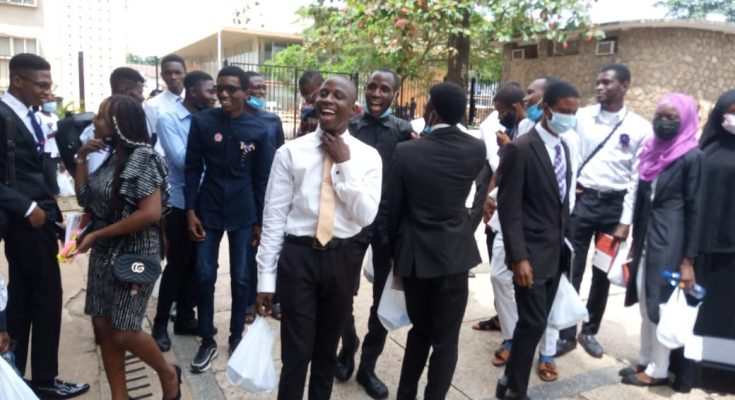By Foyin Ejilola
On Saturday, September 18th, the Union of Campus Journalists, University of Ibadan held her annual Famous Five Awards (FFA) and Induction event. In this event which did not hold last year–2020–due to covid, five notable citizens were awarded in five categories–academic, politics, humanitarian, journalism, and entertainment–and of course, new campus journalists are officially inducted into the union.
Being a gathering where journalism and bits of other things are expected to be discussed, notable journalists were invited to lecture the campus journalists who were present at the event on certain things they should be aware of to succeed as journalists.
On Qualities That A Campus Journalist Should Possess
Courage is one of the qualities that is required of a journalist, student or not. Ibrahim Adeyemi, awards winning journalist who works for FIJ talked about this using the popular Franklin D Roosevelt’s quote: courage is not the absence of fear, but rather the assessment that something else is more important than fear. It takes courage to investigate and report the corrupt activities of the authority or management of a place especially when one may be directly affected in terms of education or job. He explained that as a journalist, there is an obligation to push sentiments or connections to a story aside and report societal ills.
Campus journalists must be objective in their investigations and reports. He explained that objectivity for journalists solely involves investigating against your bias, therefore, campus journalists are obligated to do away with their feelings, personal interpretations or prejudices when investigating or reporting a story.
Journalists are known for uncovering despicable acts amongst politicians, top officials, in institutions like universities, prisons, hospitals, for instance, Fisayo Soyombo’s investigation in Federal Neuro-Psychiatric Hospital, Yaba, popularly known as Yaba Left, and also, the plight of the people in some areas, of which an example is Kunle Adebajo’s investigation on how people are being affected by Boko Haram Insurgency in some parts of Northern Nigeria. Here, Ibrahim Adeyemo, stated the importance of these kinds of investigations. He, however, added that campus journalists should not just uncover gross misconduct and problems in the society but also strive to proffer solutions as journalism should not just be about reporting negative things.
For a campus journalist who is not smart enough, many things can go wrong. This is because the campus journalists are often in friction with the university’s management, their lecturers, and even their fellow students. Therefore, campus journalists need to protect themselves and their degrees and at the same time not allow things to go wrong under their watch without reporting.
While discussing how to get opportunities as campus journalists, Adeyemi recommended that they prepare themselves for opportunities so they can be met halfway. He explained that the best way to be prepared for opportunities as a campus journalist is to learn the rudiments of writing. He explained that they must learn and master the art of writing simply to communicate.
“Writing is difficult, especially writing to make people understand without having to make use of a dictionary,” he said.
Rounding off his lecture, he gave tips on how to build one’s writing skills as a campus journalist.
“Read good articles. Before you write an article, read similar ones. Also, read more than you write and be committed or else, you will be frustrated,” he said.
On Ethics and Challenges in Campus Journalism
One of the major ethics of journalism is to also strive for accurate information. This was addressed among other ethics by Alao Abiodun, a former Editor-in-chief of NUESA Press and journalist at The Nation newspaper. He implored campus journalists to strive to report their stories based on facts and not hearsay. To solve this problem, he suggested that they lookout for people who are in the best position to give information on a particular/controversial issue.
Verifying information or a claim cannot also be stressed enough in journalism. Here, he explained that when a claim or a piece of information is brought to the hearing of a campus journalist, it is important that they verify such information from the right sources as it may turn out to be inaccurate or false. Thus, reporting such a story right away can lead to trouble.
Also, sources are to be kept confidential. Revealing their identity may put them in danger or cause conflict. Alao shared an experience where he shared a recorded phone conversation between him and the Dean of Students during his time with a friend and the recording spread like wildfire before he could control it. Although the Dean was not put in any trouble, he stated that it was quite hard for him to win the Dean’s trust back. He added that campus journalists should ensure that their facts are well-represented, logical, and they always have strong evidence to back up a story.
In conclusion, campus journalists should utilise their time and attend as many journalism training sessions as possible to hone their skills and give them practical experience.




